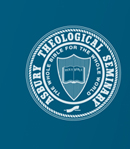Abstract
In Elisabeth Schüssler Fiorenza’s proposed emancipatory paradigm, the biblical scholar must both analyze how the Bible is used to subjugate and imagine how those texts could form a more just world. If tenants of this emancipatory paradigm were practiced in the local church, the Bible’s power could nurture a more just society. This paper explores how an emancipatory paradigm could be applied in local churches through analyzing the structure of its grassroots inspiration, Consciousness Raising Groups of the American Women’s Liberation Movement, and also a similar South African method, Contextual Bible Study. In contrast to other models like the pastor theologian, the emancipatory paradigm resists hierarchical structures and instead invites all to the table of biblical interpretation.
DOI
10.7252/Journal.02.2023F.04
Recommended Citation
Hopkinson, Hannah L.
(2023)
"The Bible for All: Biblical Interpretation as a Grassroots Movement,"
The Asbury Journal:
Vol. 78:
No.
2, p. 300–318.
Available at:
https://place.asburyseminary.edu/asburyjournal/vol78/iss2/5
Included in
Biblical Studies Commons, Christian Denominations and Sects Commons, Missions and World Christianity Commons

